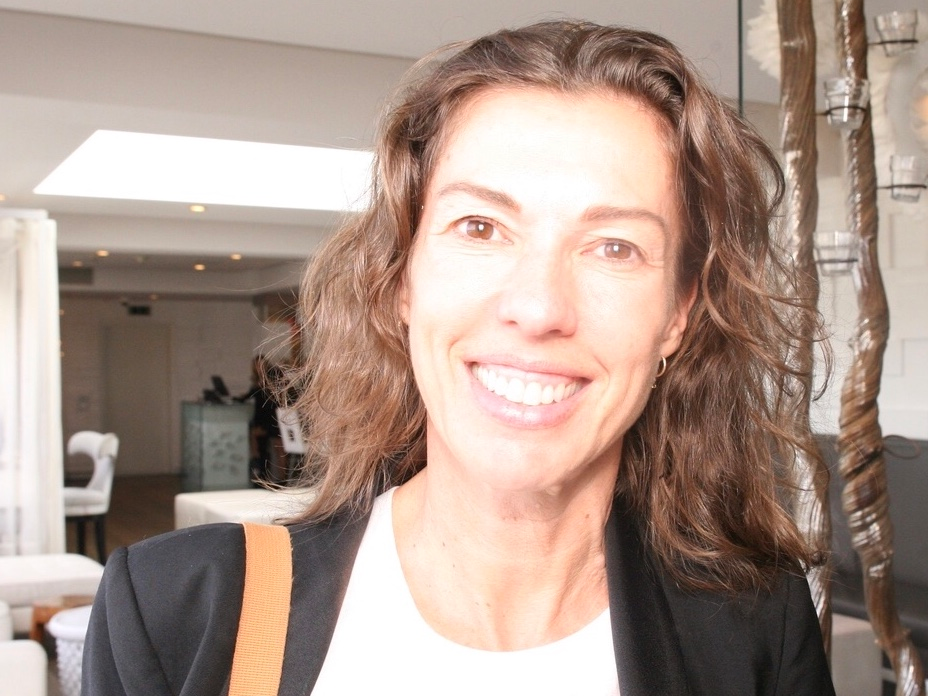- Dominique Mielle was one of the hedge-fund industry’s most senior women, working at $20 billion Canyon Capital for 20 years.
- She was the firm’s only investment partner, and is one of the few senior female investors in hedge funds.
- Hedge funds are facing a performance problem – one that could be improved if hedge funds included more diversity in their top ranks, Mielle argues in an op-ed.
In 1991, on my first day as an investment banking analyst at Lehman Brothers, HR called me into their office.
“It has come to our attention that you are not following the proper dress code,” the lady said. My incredulity must have shown because I felt very chic in my suit. She explained: “We don’t allow pants for women.”
I was so stunned that I left her office without a word. The following weekend, I bought a “shorts-suit,” a conservative jacket with a bottom that looked like the love child of a mini skirt and swimming trunks. I wore it for days, waiting for the call from HR. It never came.
In 2008, Lehman filed for bankruptcy. In his testimony to Congress, Lehman CEO Dick Fuld said: “I wake up every single night thinking about what I could have done differently.”

Read on, Dick.
What I wore certainly would not have prevented the largest bankruptcy in US history. But the company's approach to women highlights a longstanding problem - with lessons for all of Wall Street. In essence, finance is turning down money by turning down women.
There were 10 directors on Lehman's board in 1998; nine of them were white men. The only woman, a retired US Navy admiral, had no prior finance or banking experience.
Like Dick, it got me thinking. I watched "The Last Days of Lehman Brothers." Only two women appear in the 60-minute drama. Both are secretaries.
I read "Black Edge," Sheelah Kolhatkar's book about insider trading allegations at Steve Cohen's hedge fund, SAC Capital. I don't recall a single female professional in this gripping 368-page book. Not that I advocate for women to break the law or bring a 160-year old banking institution to failure - but still.
I looked at data from Ernst & Young, KPMG and Morningstar; as of 2015, only 10% of mutual funds and 2% of hedge funds were run by women.
Wall Street in general, and hedge funds in particular, look like the male response to Wonder Woman's secret, hidden island, populated only by women descended from the mythological Amazons. She fights for peace rather than alpha; both are hard to get - more on that later.
I am not bringing this issue as a matter of fairness and equality - although I'd find them attractive arguments if I ever met them on Wall Street. I am talking returns - the sole purpose of a hedge fund.
I am not bringing this issue as a matter of fairness and equality. I am talking returns - the sole purpose of a hedge fund.
While few women occupy investment roles, several studies show that women outperform men. Berkeley researchers in 2001foundthat men "overtraded," reducing returns by over 1% a year versus women. Hedge Fund Researchreportedthat women-owned hedge funds returned over 9% from 2000 to 2009 versus barely 6% for the composite index. A 2015studyof 326 junior traders from a research company called Financial Skills, which was founded by ex-Merrill Lynch traders, showed that men produced lower returns and transgressed the construction rules 2.5 times more often than women.Seriously - cheatersandlosers? At least SAC beat everybody else's return.
Some studies suggest that financial markets would work better with more diversity. Former trader and neuroscientist John Coates argues in his 2012 book "The Hour between Dog and Wolf" that financial bubbles could be a "young male phenomenon" due to a testosterone feedback loop in exuberant markets. A 2014 study by six researchers from top universities andpublished by the National Academy of Sciencesfinds that "bubbles are affected by ethnic homogeneity in the market and can be thwarted by diversity." Another book, "Women of the Street," comes to similar conclusions.
More broadly, diverse groups make better decisions - leading to higher profits. In 2017, McKinsey studied 1,000 public companies in 12 countries andconcluded that "companies in the top quartile for gender diversity on their executive teams were 21% more likely to experience above-average profitability than companies in the fourth quartile." The number rose from 15% in the 2015 study.

There were 3,000 hedge funds in 1998 when I started, controlling about $210 billion in assets. There are over 11,000 today with close to $3 trillion. Yet over my 20-year hedge fund career, I met exactly one other female investment partner. All together we could probably form a book club. The industry has grown, matured and institutionalized; the makeup of its management remains unchanged.
According to an August 2016 Barclays report, hedge funds have produced negative alpha from 2011 to the reported period, or 4.5 years.
What could be done differently you asked, Dick?
Groupthink is investors' worst contagious disease. Maybe we should be asking women to wear the pants, too.
Dominique Mielle served for 20 years as a partner at Canyon Partners, a $20 billion hedge fund based in Los Angeles. She was the only female investment partner at the firm.

